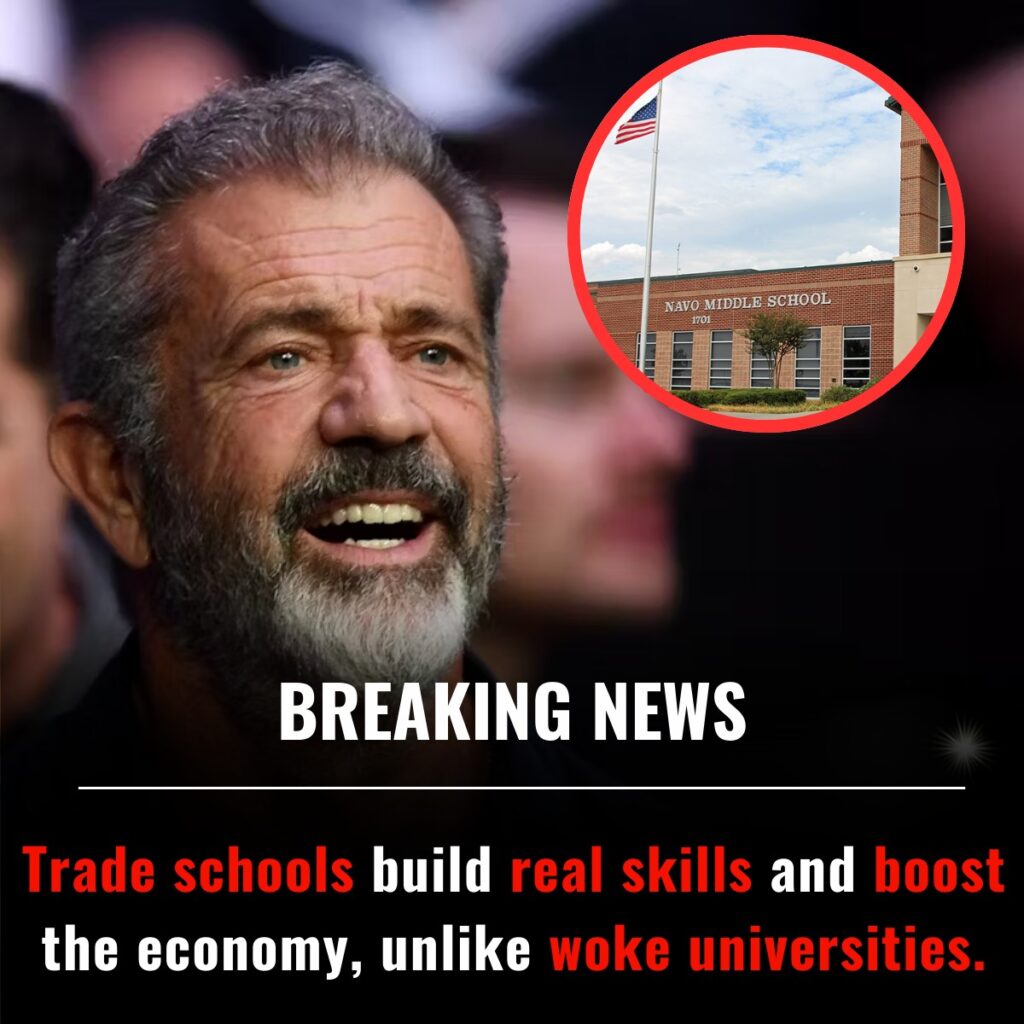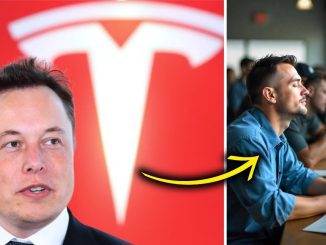
Mel Gibson Gets It: Trade Schools Build Real Skills and Boost the Economy, Unlike ‘Woke’ Universities
In an era where higher education is increasingly scrutinized for its rising costs and perceived drift toward “woke” ideologies, Hollywood icon Mel Gibson has sparked a fresh conversation by championing the value of trade schools. The actor-director recently shared his belief that trade schools are vital for equipping individuals with real-world skills and strengthening the economy, a stance that has resonated with many but also stirred controversy.
Gibson’s Argument: Real Skills, Real Jobs
Gibson’s support for trade schools is rooted in their practical, career-focused approach. He believes these institutions provide tangible benefits that are often lacking in traditional four-year universities, which he criticizes for prioritizing ideological agendas over employable skills.
“Not everyone needs a degree in gender studies to succeed. Trade schools teach skills that build homes, repair engines, and keep the world running. That’s real education.”
Trade schools offer programs in fields like welding, plumbing, electrical work, and healthcare—careers that are not only in high demand but also provide competitive salaries without the burden of student loan debt.
The Economic Impact
Gibson argues that trade schools play a critical role in addressing labor shortages and boosting local economies. According to a 2023 report by the Bureau of Labor Statistics, the U.S. faces a significant shortage of skilled workers in industries like construction, manufacturing, and transportation.
Key Benefits of Trade Schools:
- Lower Cost: Programs are typically shorter and less expensive than four-year degrees.
- Higher Employment Rates: Graduates often secure jobs immediately, with less competition in specialized fields.
- Economic Growth: Skilled labor drives infrastructure projects and innovation.
Gibson on the Economy:
“When we invest in trades, we’re investing in the backbone of our economy. These are the people who build the future—literally.”
Criticism of ‘Woke’ Universities
Gibson’s comments didn’t shy away from criticizing what he sees as the decline of traditional universities. He claims many institutions have strayed from their educational mission, focusing instead on promoting divisive ideologies.
Gibson:
“Universities should prepare students for life, not indoctrinate them with ideas that don’t pay the bills or fix the roof.”
Critics argue that this perspective oversimplifies the role of universities, which also drive research, innovation, and cultural growth. However, many agree that the rising cost of higher education and its questionable return on investment make alternatives like trade schools increasingly attractive.

A Growing Movement
Gibson isn’t alone in advocating for trade schools. Celebrities like Mike Rowe, host of Dirty Jobs, have long championed vocational education as a viable path to success. States and businesses are also stepping up, offering incentives like tuition assistance and apprenticeships to encourage more students to pursue trades.
Mike Rowe:
“We’ve been selling the college-for-all narrative for too long. It’s time we remind people that skilled labor is just as valuable.”
Public Reaction
Gibson’s remarks have sparked widespread discussion online, with opinions divided along familiar lines.
Supporters:
- “Mel Gibson is absolutely right. We need to bring back respect for blue-collar jobs.”
- “Trade schools are the future. College debt isn’t worth it unless you’re studying something useful.”
Critics:
- “Gibson oversimplifies the issue. Universities are about more than just job prep—they’re about expanding knowledge.”
- “This is just another anti-intellectual rant disguised as support for trade education.”
Final Thoughts
Mel Gibson’s stance reflects a growing sentiment among Americans who feel traditional universities no longer align with the needs of the modern workforce. By advocating for trade schools, Gibson highlights a practical solution to the economic and educational challenges facing the nation.
As more people consider alternatives to four-year degrees, the question remains: Will trade schools finally get the recognition they deserve, or will the debate over education continue to divide public opinion?
What do you think? Are trade schools the answer to America’s labor shortages, or is this another oversimplified solution? Share your thoughts below!


